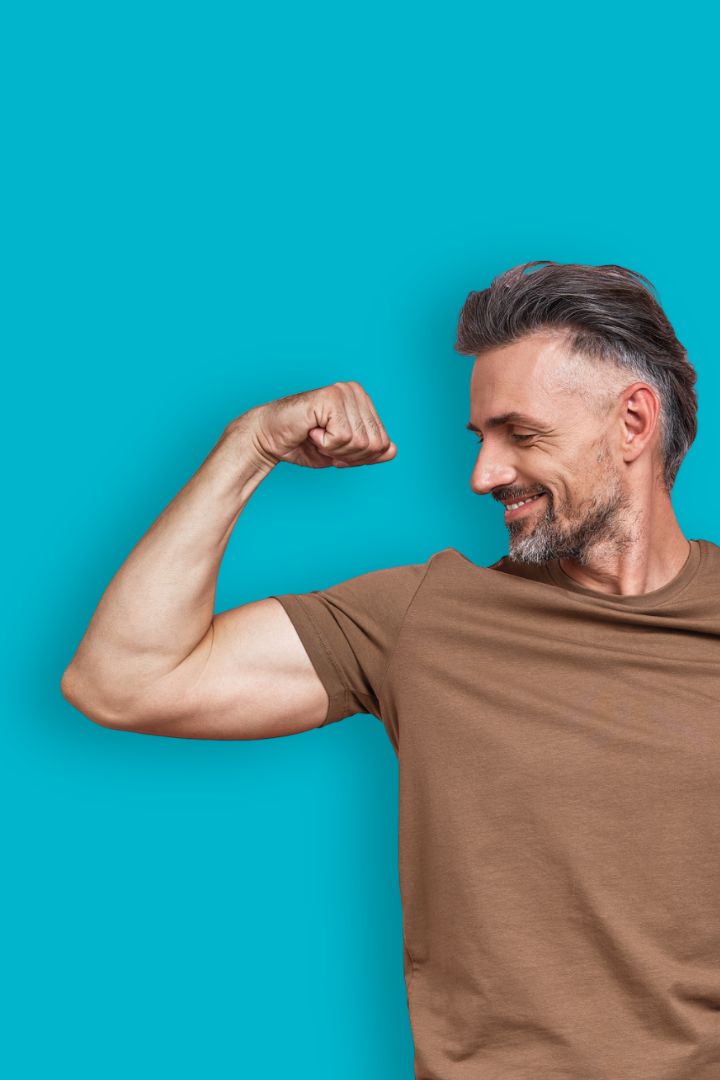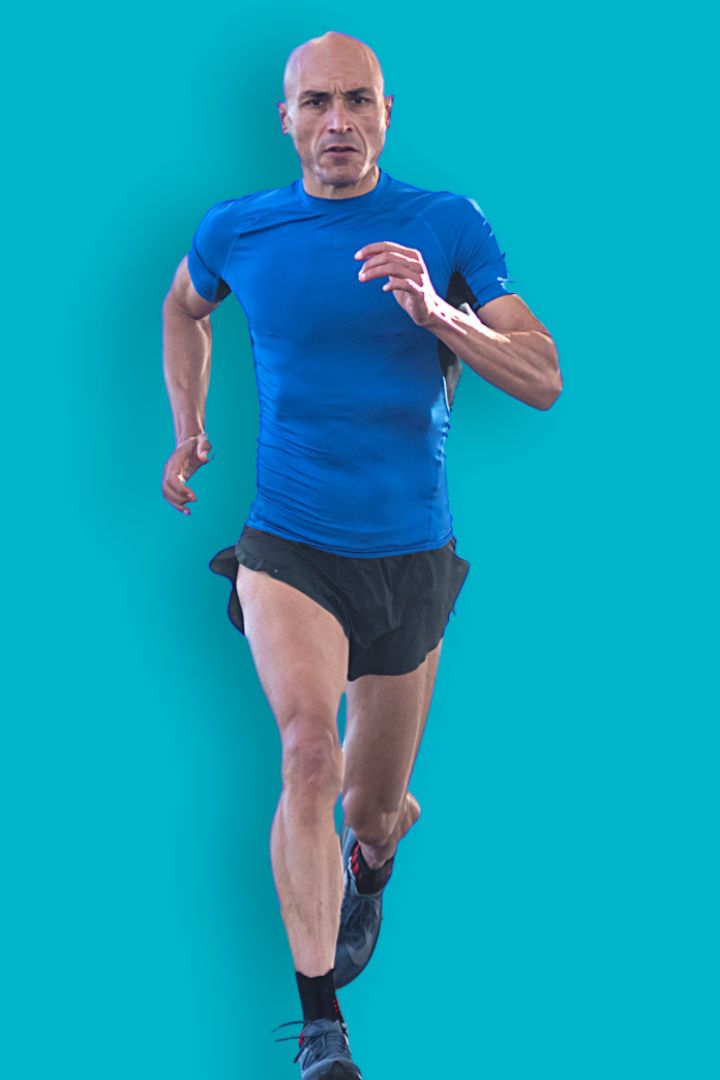
The Resilient Science of Flavonoids
The micro-nutrient flavonoids in EVERSPORT simulate exercise in a number of ways that may contribute to increased endurance and resilience.
We fortify each EVERSPORT product with two specific flavonoids called EPICATECHIN & QUERCETIN.
These active bio-nutrients are present in many healthy fruits, vegetables and even tea, cocoa, and coffee. There is a large body of science demonstrating mulitple astonishing links to endurance and resilience.
What Happened After 2 Weeks of EverSport Supplementation?
Increased Efficiency:
+24% Basal Respiration – Cells more active at rest
More Energy Capacity:
+23% ATP Production – More total available energy
Greater Stress Tolerance:
+65% Reserve Capacity – Ability to meet stress, exertion, or recovery demands
In partnership with UC San Diego Medical School, we ran a clinical study in pre-orthapedic surgery patients over age 50 who had exercise limitations.
Exercise is beneficial because it's hard

The reason why exercise can feel difficult is because it stresses our muscles and cardiovascular system. As we exert ourselves, we accumulate stress and start to feel the effects as fatigue, soreness, and even mental fog.
But the benefit of doing hard things, then recovering and recharging, is the body adapts. So the next time we ask our muscles, heart, brain and lungs to push, they're a little stronger, more efficient and more resilient.
Rinse and repeat! Over time we increase stamina, fitness, and our ability to rebound and go again.
EverSport's supplementation naturally stimulates a number of endurance adaptations we train for.

Energy Metabolism
Cardio exercise improves muscle cell energy efficiency and our ability to sustain exercise using aerobic metabolism.
This happens when strenuous exercise and recovery stimulates mitochondrial growth inside our cells. Mitochondria are the sub-cellular structures that power exercise. The more we have in each muscle cell, the more efficient we become at fueling our workouts, which translates to increased stamina before our energy reserves deplete and we begin fatiguing.
Quercetin & Epicatechin have been shown to stimulate mitochondrial biogenesis in muscle, brain, and heart tissue. This is the process that produces more mitochondria in each cell which also translates to the ability to utilize more oxygen and fat to sustain exercise.

Muscle Growth
During long or strenuous exercise, muscle cells are stressed, damaging their structure. The good news is this stress triggers a restoration response during recovery that mobilizes immune cells and nutrients. The outcome is not only restoration of muscle function but also reinforcement of existing muscle fibers, contributing to increased strength, muscle density, and endurance.
Epicatechin has been shown to help reduce the loss of muscle mass, and aid muscle growth, even in the absence of exercise.

Blood Flow
As we increase exertion or prolong exercise, our muscles demand more and more metabolic resources. That means increasing the flow of oxygen, water, electrolytes and energy supplies via the blood to hard working muscle cells.
Our network of blood vessels are flexible and can expand and contract to meet the demands of exercise just like a gas pedal controls fuel flow to a car's engine. As we age, the flexibility of this system decreases, gradually restricting our ability to throttle up blood flow when needed. Exercise helps maintain and even increase the functionality of our cardiovascular system.
Epicatechin has been demonstrated to stimulate Nitric Oxide production, a signaling molecule that plays a key role in telling our blood vessels when to expand and increase blood flow to muscles.

Oxidative Stress & Recovery
With cardio exercise, oxidative stress builds up in muscle cells, contributing to inflammation, fatigue and soreness which we often experience "the day after". With regular exercise, we can improve muscle resilience in the face of oxidative stress and pay less of a toll when we are highly active. This translates to increased endurance, making it easier to sustain effort and recover a little faster after exercise.
Quercetin & Epicatechin both have potent antioxidant properties that help muscle cells scrub oxidative stress during & after exercise.
Epicatechin has been shown to help inhibit muscle cell inflammatory signaling, which assists our natural exercise recovery process and helps reduce soreness and fatigue when we over-exert.
